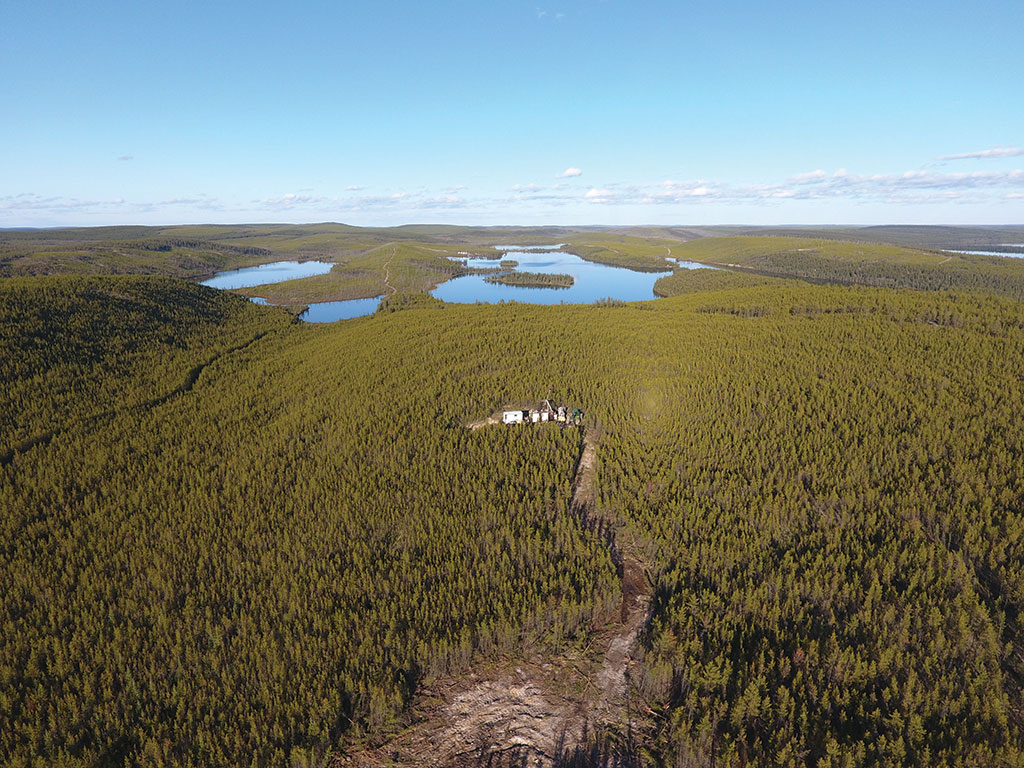Uranium Energy makes high-grade discovery at Christie Lake project in Saskatchewan

Uranium Energy Corp. (NYSE American: UEC) has made a new discovery at the Christie Lake project located in the eastern Athabasca Basin of northern Saskatchewan. The discovery hole encountered high-grade mineralization that averaged 7.8% eU3O8 (uranium oxide) over 9.1 metres and included a subinterval of 26.1% eU3O8 over 2.3 metres.
A follow-up hole intersected the unconformity approximately 13 metres to the northeast and intersected 68.7% eU3O8 over 2.1 metres, the highest-grade mineralized intersection ever encountered on the Christie Lake property.
These intersections at Christie Lake represent some of the largest and highest-grade drill intersections of uranium reported globally in 2022, according to the company.
To date, seven holes have been drilled into a new discovery, named the Sakura zone, all of which contain uranium mineralization at or near the unconformity. The mineralization remains open in all directions and will be the focus of the next phase of drilling on the Christie Lake property. The 2023 winter program is expected in early January.
Christie Lake is one of 29 projects included in UEC’s recent C$171 million acquisition of UEX Corporation, and one of five that are at resource stage. The property is strategically situated 9 km along strike of Cameco’s McArthur River, the world’s largest and highest-grade uranium mine.
UEC currently has an approximate 82.77% interest in the project, with JCU (Canada) Exploration Company acting as its joint venture partner.
“The projects in Canada’s Athabasca Basin are among the highest grades globally for conventional mining, and today’s headline 68% grade over 2 metres demonstrates this competitive advantage,” UEC CEO Amir Adnani said in a press release. “While porosity, flow-rates and recoveries are essential in US in-situ recovery production, grade is king in conventional mining.”
“At UEC, we have created a North American platform of best-in-class uranium resources in proven US and Canadian mining jurisdictions,” he added.
{{ commodity.name }}
{{ post.title }}
{{ post.date }}




Comments